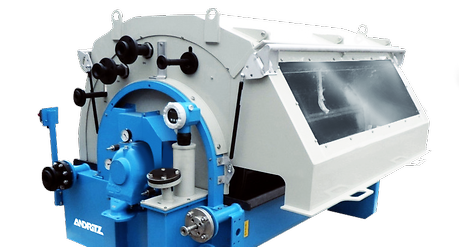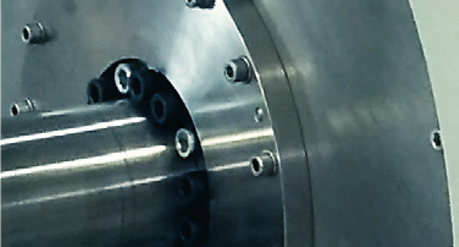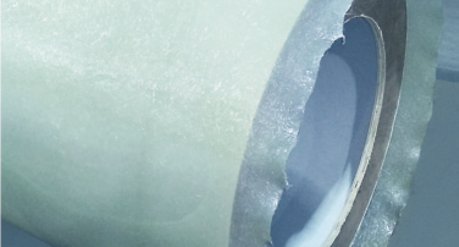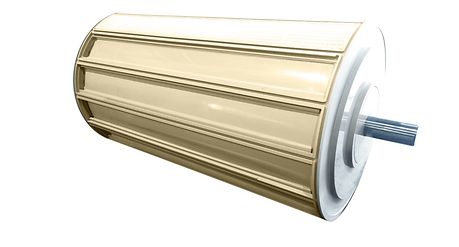Chemicals
- Titanium dioxide
- Sulfuric acid applications
- Hyper chloride applications
- Processes with potentially unknown acids
With the CORESTM vacuum drum filter, ANDRITZ has developed an innovative, long-life solution, and very reliable filter design that offers maximum corrosion resistance.
CORESTM vacuum drum filter, innovative solution for highly corrosive applications
Vacuum drum filters are the state-of-the-art technology for highly corrosive applications such as producing titanium dioxide (TiO2) in sulfuric acid (H2SO4) processes or in processes where slurries with a high content of hydrochloric acid (HCl) are used.
The CORESTM vacuum drum filter is a significant innovation to prevent corrosion. The patented sandwich design provides a permanently chemically resistant surface and can be implemented with different materials to ensure resistance to chemicals. Depending on the size required, the structure itself is made of steel or completely of GRP (glass fiber reinforced plastic).
In addition, all parts in contact with the product are covered with a layer of corrosion resistant, non-reinforced plastic, such as PP, which is commonly used in the chemical industry. Furthermore, some internal wetted parts are made entirely of resistant plastic and are welded together with external surfaces made of plastic to provide a closed surface for corrosive applications.
In addition to corrosion, all forces and moments have to be handled. Thus, the structural design, including the shaft, the head walls of the drum, and the frame work of the trough, are made of steel, completely of GRP, or of a combination of both in critical areas, depending on the size.
A special design for these parts ensures smooth distribution of moments, torques, and forces, and the shaft design allows body support, which is important for large sizes. Furthermore, the drum body is secured to the shaft with a clamping set, which allows the use of different materials according to the properties required.
All parts are designed according to a FEM calculation carried out for this new development. The support structure of the drum body can be made of GRP only because it is exposed to much fewer forces. The GRP is embedded into resin and laminated onto the steel structure. Finally, all parts in contact with the product are covered with a layer of non-reinforced plastic, such as PP, for long-term use to ensure chemical resistance. The entire plastic covering is tightly welded, so no single gap or screw remains inside the process area. Used plastics have been applied in the chemical industry for a long time and are well established.
Internal clamping set to secure the drum body to the shaft, non-wetted section
GRP shell during manufacturing
| Average particle size | 1–300 µm |
| Solids throughput | up to 1,500 kg/m²h |
| Filtration capacity | 100–2,000 l/m²/h |
| Washing ratio | up to 1:1 water to dry solids |
| Process temperature | 80°C for PP |
CORESTM vacuum filter with sandwich design for a permanently chemically resistant surface
* CORES is a registered European Union Trademark





